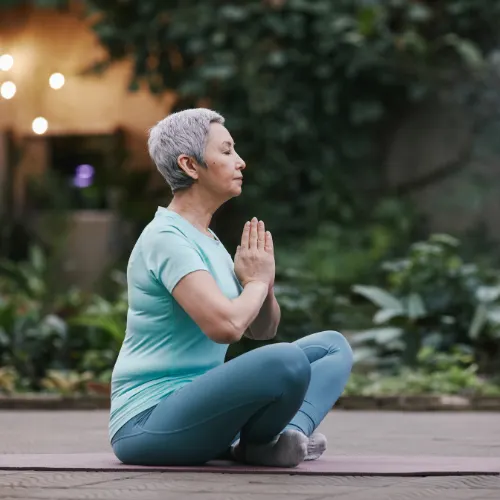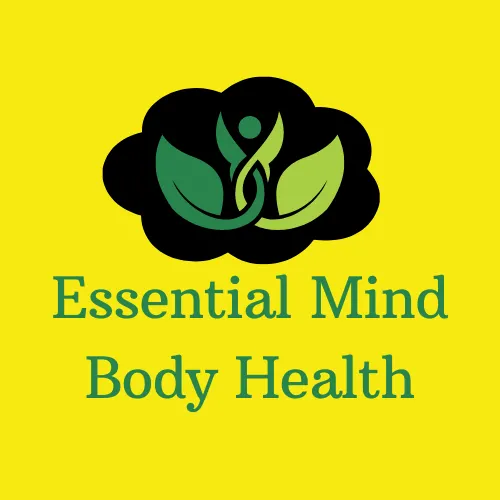
The Transformative Benefits of Meditation for Seniors: Enhancing Mind, Body, and Spirit
Finding moments of peace and tranquility in our fast-paced world can be challenging, especially for seniors who often face unique stressors related to aging. Meditation is not only an ancient practice, is is also a scientifically proven tool for mindfulness and relaxation which promotes overall well-being. In this article, we will explore how older adults can benefit from incorporating meditation into their daily routine to experience a myriad of benefits that enhance their mental, physical, and emotional health.
Mental Health Benefits
One of the most profound impacts of meditation for seniors is its ability to improve mental health. Aging often brings about cognitive challenges, including memory loss and difficulty concentrating. However, regular meditation practice can counteract these issues and promote mental clarity.
Enhanced Cognitive Function
Meditation has been shown to increase gray matter in the brain, particularly in the areas associated with memory, learning, and emotional regulation. For seniors, this means improved cognitive function and a greater ability to retain and recall information. Mindfulness meditation, in particular, helps seniors stay present and focused, reducing distractions and enhancing overall mental sharpness.
Reduced Anxiety and Depression
Anxiety and depression are common among older adults, often due to loneliness, health issues, and life changes. Meditation promotes relaxation and helps regulate emotions, significantly reducing symptoms of anxiety and depression. By focusing on the present moment and practicing breathing techniques, seniors can alleviate stress and cultivate a sense of inner peace.
Physical Health Benefits
Beyond mental health, meditation also offers numerous physical benefits that are crucial for seniors' well-being.
Lower Blood Pressure
High blood pressure is a prevalent issue among older adults, increasing the risk of heart disease and stroke. Meditation encourages relaxation and can lower blood pressure by reducing stress hormones in the body. Studies have shown that regular meditation can lead to significant reductions in both systolic and diastolic blood pressure, promoting cardiovascular health.
Pain Management
Chronic pain is another common issue that many seniors face, often resulting from conditions like arthritis or osteoporosis. Meditation, particularly mindfulness and body scan techniques, can help manage chronic pain by shifting focus away from the discomfort and fostering a more accepting and less reactive relationship with pain. This mental shift can lead to a reduction in perceived pain intensity and an overall improvement in quality of life.
Improved Sleep Quality
Sleep disturbances are frequent among seniors, impacting overall health and daily functioning. Meditation promotes restful sleep by calming the mind and relaxing the body, making it easier to fall asleep and stay asleep. Practices such as guided imagery and progressive muscle relaxation can be particularly effective in improving sleep quality.
Emotional and Social Benefits
The emotional and social aspects of meditation are equally important, contributing to a more fulfilling and connected life for seniors.
Enhanced Emotional Well-being
Meditation fosters a sense of emotional balance and resilience. Seniors practicing meditation often report feeling more positive, patient, and compassionate towards themselves and others. This enhanced emotional well-being can lead to better relationships and a more joyful outlook on life.
Increased Social Interaction
Group meditation sessions provide an excellent opportunity for seniors to spend time with others, reducing feelings of isolation and loneliness. These interactions can build a sense of community and belonging, which are vital for emotional health. Sharing experiences and progress in a group setting can also reinforce commitment to the practice and offer additional support and motivation.
Practical Tips for Seniors to Start Meditating
For seniors new to meditation, starting the practice may seem intimidating. Here are some useful tips to help ease into meditation:
1. Start Small: It is best to begin your practice with short sessions of 5-10 minutes and gradually increase the time as you become more comfortable with mediating.
2. Choose a Comfortable Space: Find a quiet, comfortable place free from distractions. Sitting in a comfortable chair or lying down can help minimize physical discomfort.
3. Focus on Breathing: Simple breathing exercises can be a great introduction to meditation. Focus on taking slow, deep breaths and observe the sensation of breathing.
4. Use Guided Meditations: There are numerous apps and online resources offering guided meditations tailored for seniors. These can provide structure and ease the learning process.
5. Be Consistent: Like any new habit, repetition and consistency is key. Try to meditate at the same time each day to establish a routine.
Conclusion
Meditation offers a wealth of benefits for seniors by improving mental, physical, and emotional health. By incorporating this practice into their daily lives, seniors can enjoy enhanced cognitive function, reduced anxiety and depression, better blood pressure control, pain management, better sleep quality, and enriched emotional well-being. Furthermore, meditation can foster social connections and a sense of community, crucial for overall happiness and life satisfaction.
Embracing meditation can lead to a more peaceful, fulfilling, and vibrant life for seniors. It's never too late to start reaping the transformative benefits of this ancient practice, supporting a healthier and happier aging process.
